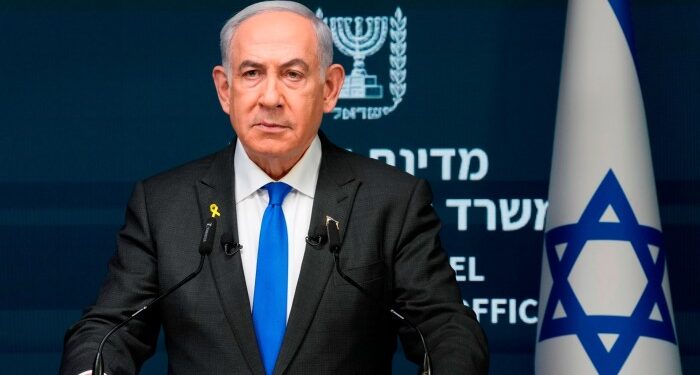Unlock access to the Editor’s Digest for free, where Roula Khalaf, Editor of the Financial Times, handpicks her favorite stories for this weekly newsletter just for you.
On Thursday, Israel’s Prime Minister, Benjamin Netanyahu, accused Hamas of backing out of parts of a ceasefire and hostage release agreement for Gaza. This development comes as he deals with resistance from his far-right allies concerning the US-brokered plan.
Israel stated that it had postponed a cabinet meeting intended to formalize the deal, although Hamas insisted on its commitment to the arrangement unveiled by mediators on Wednesday.
US President Joe Biden, President-elect Donald Trump, and the Prime Minister of Qatar announced late Wednesday that a deal was brokered. It would pause the 15-month conflict in Gaza and secure the release of 98 hostages still held captive.
Trump was the first leader to praise the agreement on Wednesday and has since urged both Israel and Hamas to close the deal before his Monday inauguration. He’s issued strong warnings of severe consequences, emphasizing that the January 20 deadline for releasing the hostages must not be missed, with the ceasefire and first wave of hostage releases set for Sunday.
However, Netanyahu’s government, which depends on the backing of two far-right parties opposed to any agreement, mentioned that further details still needed ironing out. On Thursday morning, they added that Hamas was retracting on its commitments.
“Israel will not schedule a cabinet and government meeting to approve the deal until the mediators confirm Hamas has agreed to all stipulated details,” announced Netanyahu’s office.
Earlier that day, Israel accused Hamas of trying to control which Palestinian prisoners would be freed in exchange for Israeli hostages, thus reneging on the terms.
Netanyahu’s remarks coincided with a statement from a finance minister member, Bezalel Smotrich, belonging to the far-right Religious Zionist party. This party hinted at potentially leaving the government if the deal was confirmed.
Zvi Sukkot, a lawmaker from that party, during a talk with Kan Radio, suggested that they might resign from the government if the deal went through. The party’s aim, he noted, was to fundamentally alter Israel, not just inflate the coalition numbers.
Smotrich has vocally critiqued the arrangement, labeling it “bad and dangerous” on Wednesday night. He insisted his continued participation in the government was contingent on Israel’s ability to resume the conflict in Gaza “at full force” after the hostages’ release.
The potential agreement carries the promise of ceasing — and possibly resolving — a harsh conflict that stands as the deadliest episode in the long-standing Israeli-Palestinian dispute.
The fighting has ravaged Gaza, deeply affected Israeli society, and brought the Middle East close to a large-scale war.
If implemented as designed, the agreement includes an initial 42-day ceasefire, during which 33 hostages, encompassing children, women, the sick, and the elderly, will be released at intervals.
In return, Palestinians would be released from Israeli detention, humanitarian aid would flow into Gaza, and there would be a partial Israeli withdrawal from the territory.
By the 16th day of the ceasefire, it’s anticipated that Israel and Hamas will negotiate the deal’s second phase, addressing the release of remaining hostages, a full Israeli withdrawal, and an end to hostilities.
Trump associated the deal with his victory in the November US presidential election, while Biden described it as “one of the toughest negotiations I have ever experienced.”
Iran has also embraced the deal, lauding it as a “historic victory” for the Palestinian cause and proof that the anti-Israel resistance has withstood months of devastating warfare.
The conflict escalated following Hamas’s attack on Israel on October 7, 2023, which resulted in the deaths of 1,200 people and the taking of 250 hostages — marking the deadliest day for Jews since the Holocaust.
Israel’s counterattack in Gaza has resulted in over 46,000 casualties, igniting a humanitarian crisis in the region.
Additional reporting, thanks to Bita Ghaffari in Tehran.
















